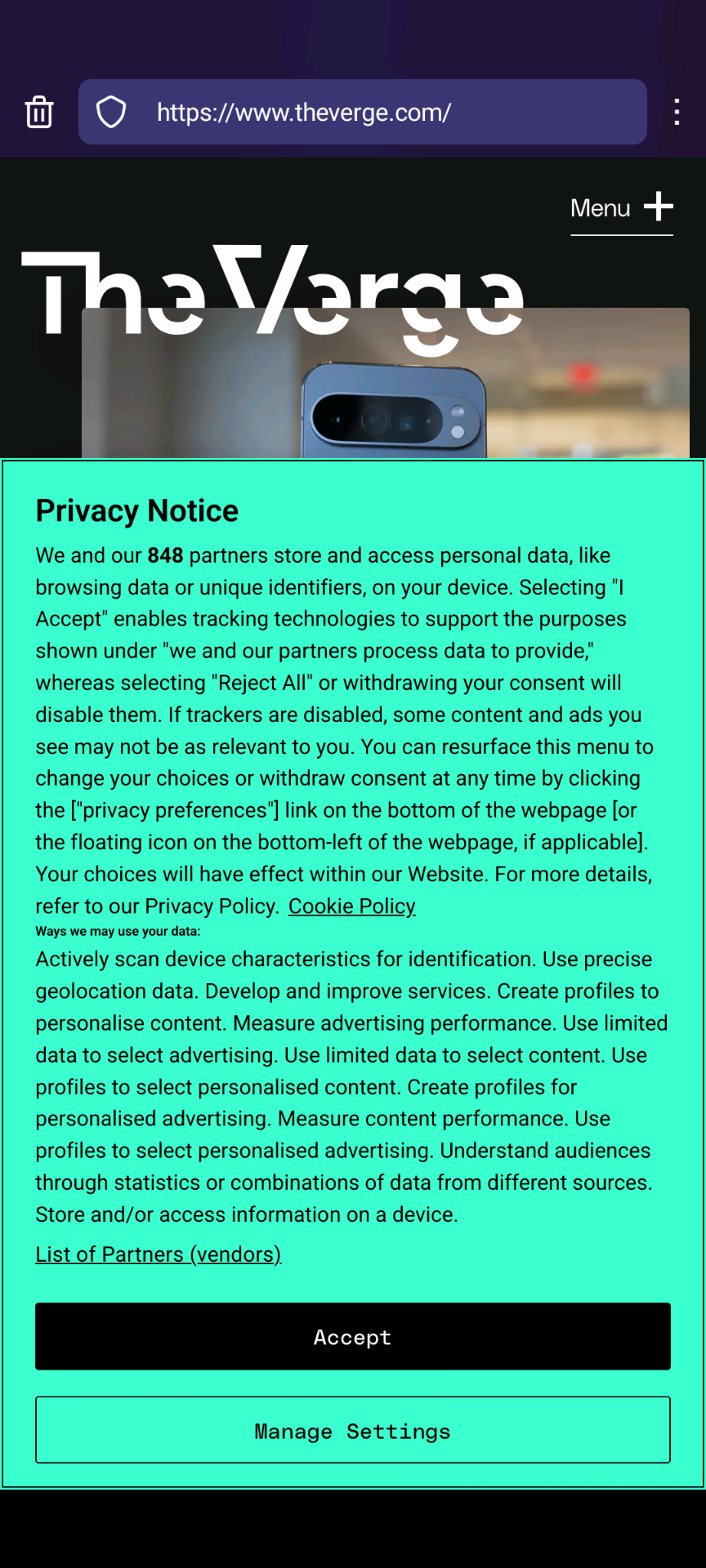this post was submitted on 14 Aug 2024
657 points (98.7% liked)
Privacy
34029 readers
837 users here now
A place to discuss privacy and freedom in the digital world.
Privacy has become a very important issue in modern society, with companies and governments constantly abusing their power, more and more people are waking up to the importance of digital privacy.
In this community everyone is welcome to post links and discuss topics related to privacy.
Some Rules
- Posting a link to a website containing tracking isn't great, if contents of the website are behind a paywall maybe copy them into the post
- Don't promote proprietary software
- Try to keep things on topic
- If you have a question, please try searching for previous discussions, maybe it has already been answered
- Reposts are fine, but should have at least a couple of weeks in between so that the post can reach a new audience
- Be nice :)
Related communities
much thanks to @gary_host_laptop for the logo design :)
founded 5 years ago
MODERATORS
you are viewing a single comment's thread
view the rest of the comments
view the rest of the comments

Oh, the horror! (Not that we'll be seeing ads anyway.)
"some content and ads you see may not be as relevant to you" is what we in mathematical logic call a vacuous truth.
which part is the (false) antecedent, and which part is the statement?
If you're looking for a never true anticedent reason that "some content and ads you see may not be as relevant to you" is vacuous, that would work if they had an ad browser that was 100% effective on the site in question.
If you're looking for a never true anticedent for "If trackers are disabled, some content and ads you see may not be as relevant to you.", it's that you can't disable all trackers with a cookie dialog because of the "necessary cookies" blanket exemption, the too many tick boxes to use "legitimate interest" loophole, and that most websites use "fingerprinting", meaning they reference you not by your cookies but by the worryingly extensive information they get automatically about your browser's version, settings, capabilities and features, and of course IP address. So it's never true that trackers are never disabled.
What the Wikipedia article doesn't explain well in my view, is that logically, "if A then B" means "B or not A" for short, or more explicitly, "in all circumstances, at least one of B, or (not A) , is true". This is vacuously (emptily) true if B is always true or A is always false, because it's not genuinely conditional at all.
So I suspect that they meant it was vacuous, not on the grounds that the anticedent could never be true, but that the consequent could never be false. Like "If you give me $10, the sun will rise tomorrow". In this case, all they need to assert is that "some content and ads you see may not be as relevant to you" is true irrespective of whether trackers are disabled, which is almost certainly what they meant.
I'm curious that the Wikipedia article says the base case in an induction is often vacuously true, but I think they mean trivially true, like cos(1x) + sin(1x) = (cos x + sin x)^1, not vacuously true. I couldn't think of any induction proofs where the base case was literally vacuous except false ones used for teaching purposes, probably because I could only think of induction proofs of absolute rather than conditional ones. Probably there are mathematical fields where induction is used for conditional statements a lot that I'm forgetting.
Ah I see. Thanks for the detailed writeup
Back in the early 2000s, we were promised that the magic of ads online would be that they are always relevant and not terrible anymore. This is why the targeting and tracking was valid to do.
It never happened. Not for a moment.